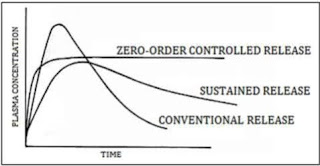How can you get the best responses to anti-viral drug treatment?
To optimize the responses to antiviral drug treatment, several factors should be considered. Here are some key strategies:
1. Early treatment: Initiating antiviral therapy as early as possible
after the onset of symptoms or diagnosis is crucial. Viral replication and
spread can be more effectively controlled when antiviral drugs are administered
early in the course of the infection.
2.
Adherence to treatment regimen: It is essential to
adhere to the prescribed dosing schedule and complete the full course of
antiviral treatment. Skipping doses or stopping treatment prematurely can lead
to inadequate drug levels and reduced effectiveness. Follow the instructions
provided by the healthcare provider or pharmacist closely.
3.
Proper drug selection: Different antiviral drugs target
specific viruses or classes of viruses. Ensuring that the chosen antiviral
medication is effective against the specific virus causing the infection is
crucial. Consultation with healthcare professionals, such as infectious disease
specialists, can help determine the most appropriate antiviral drug for a
particular viral infection.
4.
Individualized therapy: Factors such as the patient's age,
overall health status, immune function, and the presence of coexisting medical
conditions should be considered when determining the appropriate antiviral
therapy. Dosage adjustments or alternative drug choices may be necessary for
certain patient populations, such as children, elderly individuals, or those
with impaired renal or hepatic function.
5.
Combination therapy: In some cases, using a combination of
antiviral drugs with different mechanisms of action can enhance treatment
effectiveness. Combination therapy can help prevent the development of drug
resistance, increase antiviral potency, and broaden the spectrum of activity
against the virus.
6.
Monitoring and dose adjustments: Regular monitoring of
viral load or other relevant markers can help evaluate treatment efficacy. If
necessary, dose adjustments can be made based on therapeutic drug monitoring or
changes in clinical response. This ensures that adequate drug concentrations
are maintained to effectively suppress viral replication while minimizing the
risk of toxicity.
7.
Supportive care: Alongside antiviral therapy, providing
supportive care is crucial to enhance the overall response to treatment. This
may include measures such as ensuring adequate hydration, managing symptoms,
promoting rest, and addressing complications or secondary infections that may
arise.
8.
Vaccination: Vaccination is a preventive measure
that can significantly reduce the risk of acquiring certain viral infections.
For viruses with available vaccines, ensuring appropriate vaccination status can
help prevent or mitigate the severity of the infection.



Comments
Post a Comment
Thanks